The Rise of Capitalism
The last three decades of the 19th century were characterized by the rapid growth of capitalism. Capitalist production advanced considerably in the main capitalist countries, cities grew fast, and communication improved quite heavily. This time became known as the "Steel Age", as steel replaced wood in most constructions.
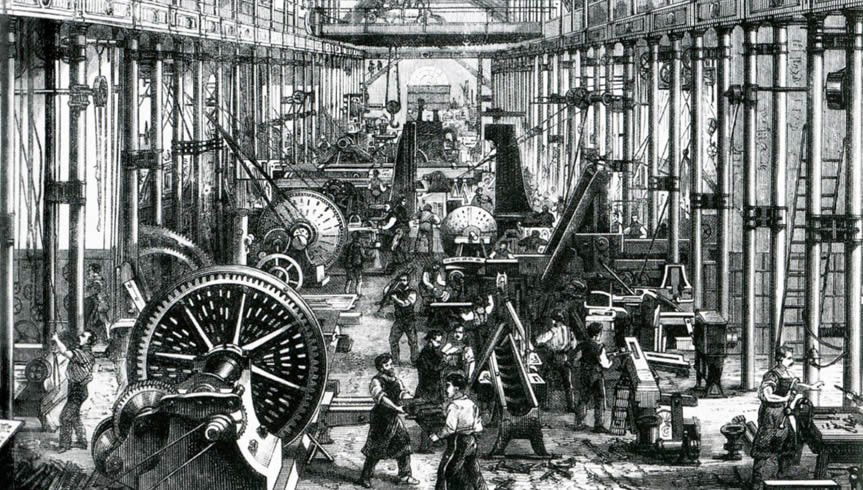
Big companies pushed one another and consequently started to eliminate small and medium companies as the competition became harsher and harsher.
Now it's our turn! Let's pretend we're one of these capitalists and battle each other at the height of the industrial revolution in the late 19th century with Furnace!
Game Info
Furnace is a board game best played with 2 to 4 players, for ages 12 and up, by designer Ivan Lashin. It was illustrated by Sergey Dulin, Maria Ivanova, Ilya Konovalov, Oleg Yurkov, Vadim Poluboyarov, and Egor Zharkov.
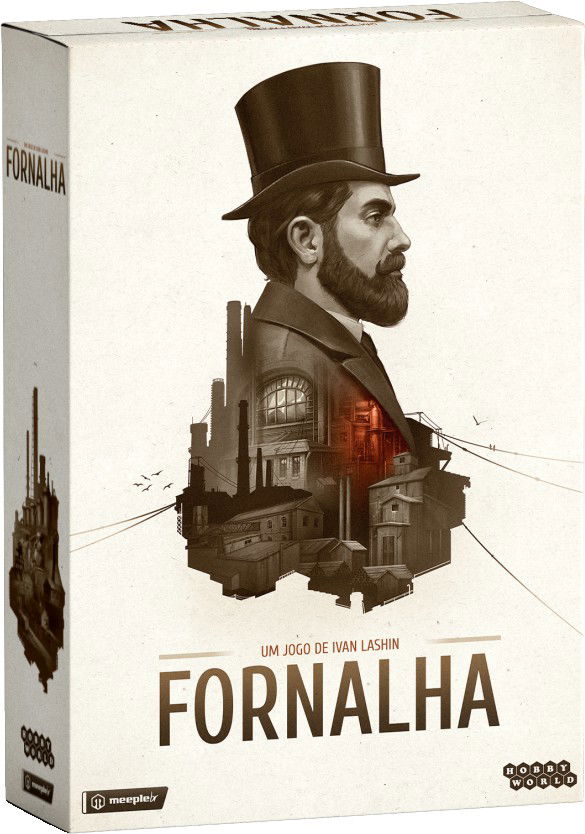
It was released in 2020 by Hobby World. Its base mechanics are: variable player powers, variable setup, auction and compensation, and multiple lots.
To me, its greatest feature is the auction compensation. It is entirely different from all the auction games I've played this far, and it isn't language-dependent. This means you can play it even if you don't speak the language it was published in.
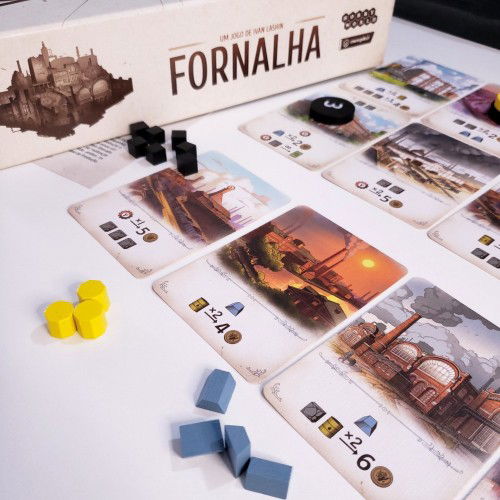
As usual, this board game was nominated for multiple awards. In 2021, a year after its release, it was nominated to the Best International Strategy Game category by 5 Seasons and was named the Best Russian Development Game by Geek Media Awards. In 2022, it was nominated for the Board Game of the Year category by Geeks d'Ouro.
Let's dive in!
The Game
Capitalism is at its peak, and it's time to make a lot of money. We'll start from the bottom as capitalists of an average company that only makes very basic products. After we begin our journey and conquer some space, we'll be able to, with our strategy and wits, become the wealthiest capitalist of all.

When the game starts, all players get a random capitalist card, which will represent them, and a random start-up card, which needs to improve and become even more productive. However, it will give you some resources as soon as you get it.
Each round has 2 phases, and is quite simple:
The number of players determines the number of companies put for auction. From then on, phase 1 starts and each player has 4 discs to bid: 1, 2, 3, and 4.
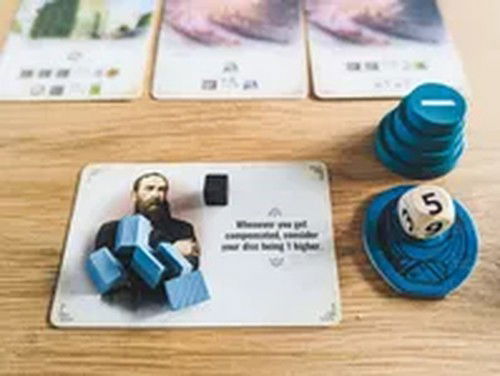
This phase is highly strategic, and also one of the best features in the game. In this type of auction, you'll either get the company with your most valuable disc (4) or get some compensation if you bid smaller values. This compensation will be the resources this company manufactures, so, if you don't want a company, you can at least bid on it and get some compensation in return. Depending on your strategy, it can even be better than getting the company itself.
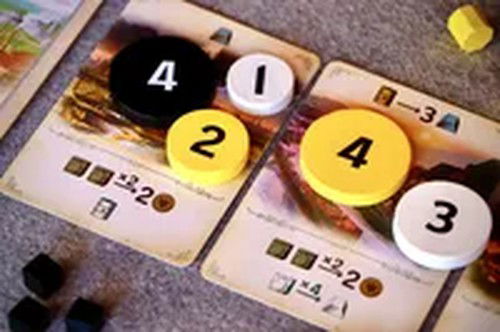
Please note that you can't bid 2 discs on a single company at an auction, nor bid the same amount as another player. This is what makes this mechanic riskier and a lot more complex. I loved this rule!
And there's more: your compensation depends on the value of the disc you bid. That's right! You might not have gotten the company, but you'll get x (your bid) times its resources. I thought this was an incredible design decision, as it changes everything!
After the auction is over, players who acquired companies get them, and the other players get their compensation. Then, phase 2 begins, so it's time to make products, and review your companies. There's a lot to do in this phase, actually, and here's a great tip: "the order of the factors doesn't alter the product" doesn't apply in this case, as the order in which you perform your actions will be incredibly relevant for your strategy.
The idea is to activate your companies in the right order, that is, by following some logic, to manufacture products, use your resources, and make more profit. It seems obvious, but many players will mess up this part and activate their companies in the wrong order. They often can't "combo" to maximize their results, that is, they can't create a chain reaction, which would make their companies much more efficient.
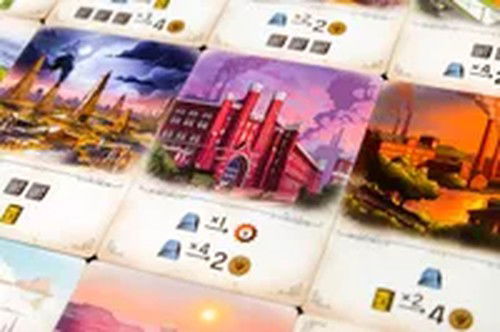
This phase requires a lot of focus and strategy, but it can be quite rewarding if you do it right. And there's a lot to do:
The best thing about upgrading a company, obviously, is getting more advantages, and more options when you activate it.
When all players have activated, in the best way possible, their companies, the round ends. By the way, there's a very handy round counter included in the game box that is, besides very functional, quite "stylish". I thought it was quite unusual.
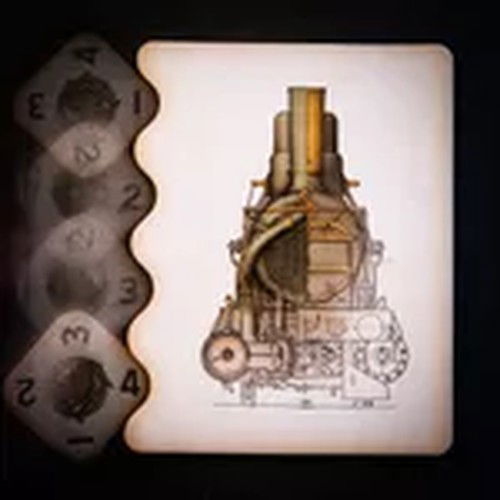
That's basically a turn in Furnace!
End of the Game
After the 4th round is over, players move on to scoring, which is quite simple.
Each player calculates how much money they have, and whoever is the richest wins! If there is a tie, the player with most companies wins. If there is still a tie, the player with most resources wins.
It's that simple!
Strategies and Tips
As Furnace has two phases, it seems simple and not very strategic, but that's not true. This game will surprise you. For instance, all players get random capitalist and start-up cards at the beginning of the game. So everyone will have to figure out how to combine their capitalist skills with their starting companies and the companies they get in future auctions. You'll need to consider your options carefully from the get-go.
After you do this, you'll move on to auctions, and don't be mistaken: it's not just about getting "the best" companies available. As we mentioned, you need to consider your capitalist skills and bid on companies that "combo" with the companies you already have to create synergies. You'll need this type of "chain reaction" if you want to get the most out of your turns.
Notice that, at times, the "best company" by all accounts is not the best company for you. So, focus on what's best for you, as this will make all the difference in the world.
When you bid on companies with your discs, don't play coy and try to bluff, or pretend you don't want a certain company: losing a company is very easy, even more if there are only 2 players bidding on the auction. In this case, you'll need to use a die to simulate a 3rd bidding player, and this is how all of your plans can fail.
I strongly recommend that you bid on a company with your highest disc straight away if you want it, and make sure you get it. Waiting around for someone to bid on it and trying to get it for less is often quite risky, and you might just lose the one company that would "get your strategy up and running".
After the auction is over, you'll need to focus on your production, and now your job will be to make sure your companies work properly. You'll have to lean on strategy and logic. For instance, take this model as an example: your first company gives you a certain resource, the second converts this resource into a product, and the third sells that product in the market. To make this strategy work, you need to set up these companies in the right order.
Take this seriously. My example was one of the simpler ones - in Furnace, you'll have multiple different resources, many ways to turn them into products, and many other ways to put that product in the market. So, put your logic skills to the test! It's like I said: in Furnace, the order of the factors does alter the product.
Follow these tips, make your companies as efficient as you can, and become the wealthiest capitalist in Furnace!
Unboxing, Rules, and Gameplay Videos
Check out this Unboxing:
Learn the rules:
Watch some gameplay:
Teaching Moments
Furnace really surprised me, quite positively too. It is relatively simple to explain and play, but has a depth I didn't see at first. It has a lot to offer you if you want to learn.
To play this game, you'll need to adapt to different situations, manage your resources well, and be assertive when making decisions. You'll also need to work well under pressure, maximize your results with what they have, and, finally, work on your logic and math skills.
For instance, you'll need to be able to adapt to any situation because, straight from the get-go, each player will have a different setup, which, I think, is brilliant. Each capitalist has different skills, and you'll also get different companies. You'll have to deal with that, adapt, and make the most out of the resources you have.
Managing your resources is also important, particularly as you'll get them from your companies and whenever you get a compensation at an auction. Having enough resources when you start a chain reaction is critical; trust me, you don't want to start making something and then have to stop because you don't have enough resources, which will leave you with idle companies. You can't just "wing" this part because the game will punish you. This is genius! You'll have to learn how to manage your resources one way or another.
Being assertive when you make decisions will be critical as well. Furnace teaches us that, if we don't take our choices seriously, we may pay for them for the rest of the journey. A bad choice at an auction will prevent you from making products for at least one round, and that's a lot for a 4-round game. So, consider your options thoroughly because they're crucial. Making good choices is great for this game and real life!
The game's auction system will teach you how to work well under pressure, as there will always be one or two companies that will bring you more advantages or let you make more products. However, this game is built on choices, and in auctions you'll often feel "tense" in a good way while also learning how to think fast and make good choices. Furnace is great to learn how to work well under pressure in a relatively risk-free environment.
This game's production phase will encourage you to think carefully about how you can maximize your results. That is, with the resources you get from your companies and compensations, you'll have to find the best way to maximize your results. This is also great to work on your math and logic skills.
If you don't have great math or logic skills, a bad situation can become even worse in Furnace. You'll need logic to understand what are the most important steps in the "work flow", and find the best order of processes to make everything work properly. This game is truly full of lessons!
In Furnace, these are the rules: be flexible, manage what you have well, use it correctly, and profit!
I highly recommend Furnace to your collection!









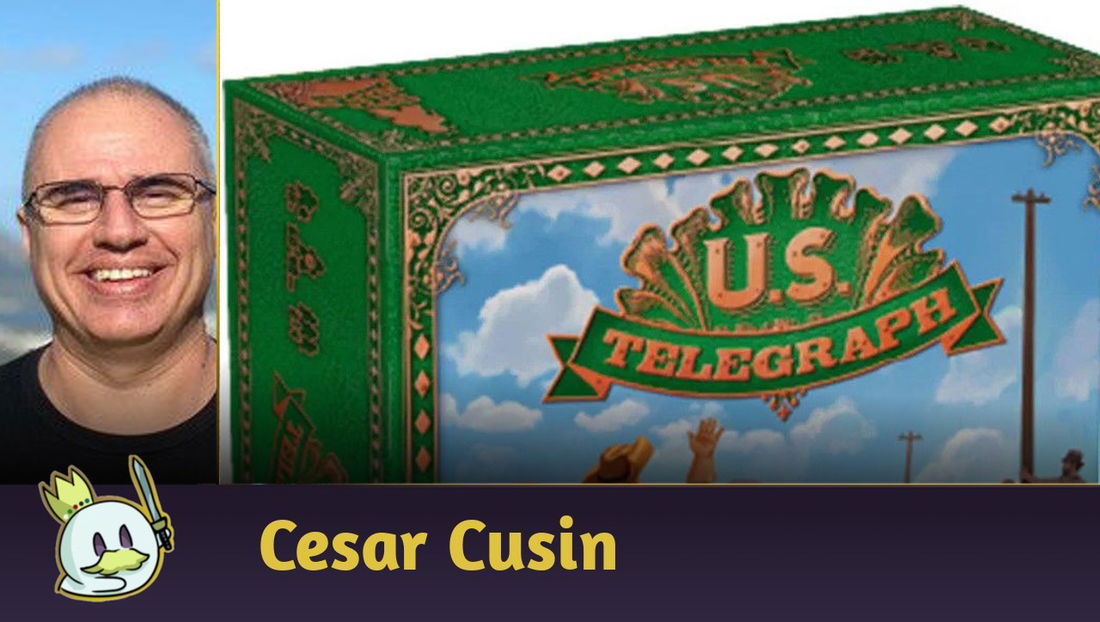
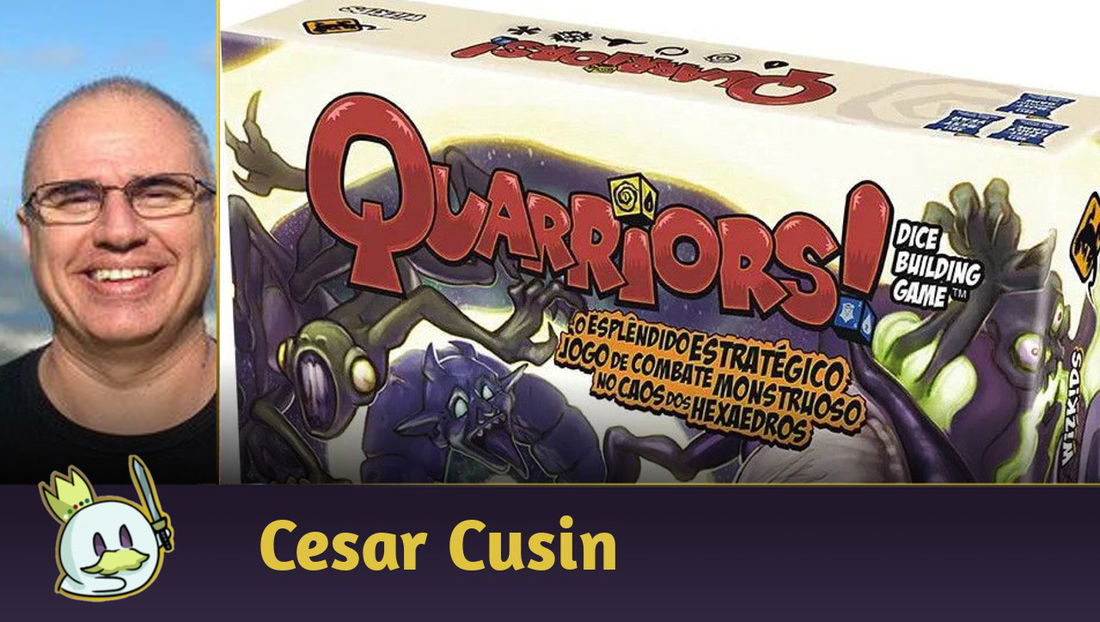



— Comments 0
, Reactions 1
Be the first to comment